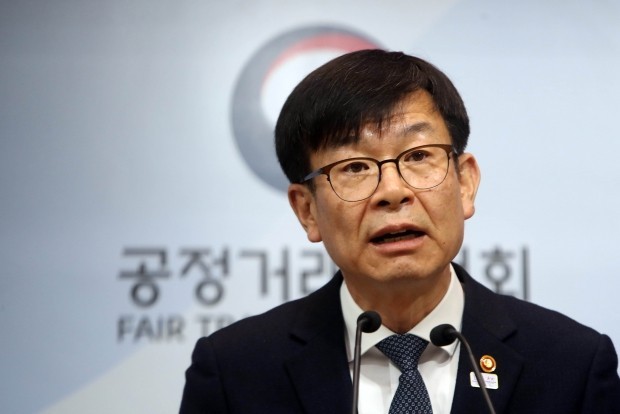A plan by South Korean auto giant Hyundai Motor Group to spin off and merge affiliates as part of its corporate governance reform drive, is “the most desirable” case for conglomerates here attempting voluntary restructuring method under state pressure, the head of antitrust watchdog said.
In a meeting with foreign press in Seoul on Friday, Kim Sang-jo, chairman of the Fair Trade Commission said the carmaker’s announcement of the owner family paying 1 trillion won ($935 million) came “unexpectedly” and seems to be in “the right direction at the right time.”
The carmaker was widely opted to establish a holding company to help the owner family -- Chairman Chung Mong-koo and his only son Eui-son -- tighten the grip even if simplifying the governance structure.
 |
Kim Sang-jo, chairman of the Fair Trade Commission (Yonhap) |
Taking the plan B, the carmaker said it would spin off Hyundai Mobis’ module and after sales businesses and merge them with logistics affiliate Hyundai Glovis.
In the process, the chairman and his son will acquire all Hyundai Mobis shares held by Kia Motors, Hyundai Glovis and Hyundai Steel. The future stock transaction will cost the family 1 trillion won in transfer tax, the company said.
Kia, Hyundai Glovis and Hyundai Steel currently own 16.9 percent, 0.7 percent and 5.7 percent stakes, respectively, in Hyundai Mobis.
While lauding Hyundai being responsible for choosing to pay 1 trillion won in tax, Kim said the carmaker may have had foreign hedge funds raising their voices in mind. “The discussion between Hyundai Motor and Elliott won‘t be friendly, but unlike Samsung Hyundai and Elliott will make predictable suggestions and responses,” the chairman said in Korean.
The former shareholder rights activist said he will meet CEOs from the top 10 companies in May to check on their efforts in governance restructuring.
Kim has previously held meetings with CEOs twice since last year to pressurize them to make voluntary efforts to improve transparency in corporate governance.
South Korean chaebol have been facing criticism from the liberal Moon Jae-in administration to remove complex web of cross-shareholding structure that have allowed descendants of the founders to exercise controlling power with small portion of shares.
The antitrust agency plans to submit a bill on revising the fair trade law to impose stricter rules on chaebol governance structure and intra-trading among affiliates blamed for benefitting owner families.
By Cho Chung-un (
christory@heraldcorp.com)







![[Robert Fouser] Accepting migrants in South Korea](http://res.heraldm.com/phpwas/restmb_idxmake.php?idx=644&simg=/content/image/2024/10/31/20241031050896_0.jpg)
